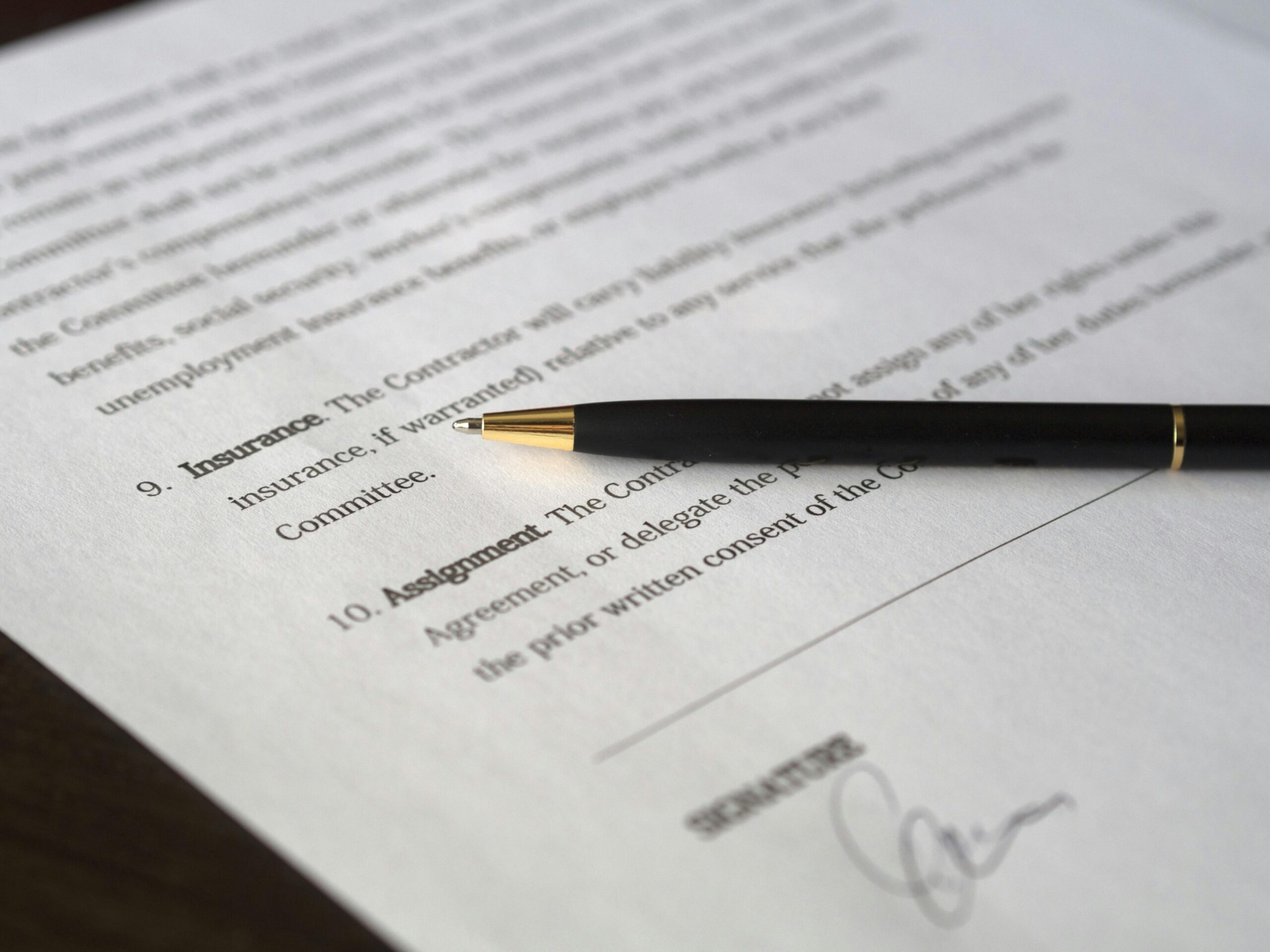
Understanding the Problem of Robocalls
Robocalls are more than just an annoyance. Every day, millions of people receive unwanted calls from telemarketing companies, debt collectors, and scammers who use automated dialing systems to bombard consumers’ cell phones with offers, demands, or fraudulent schemes. The question is: Can you sue for robocalls?
If you’ve ever picked up your cell phone to hear a pre-recorded message or a sales pitch you never agreed to, you’re not alone. The good news? You can sue for robocalls.
The Telephone Consumer Protection Act (TCPA), enforced by the Federal Trade Commission (FTC) and the Federal Communications Commission (FCC), gives consumers powerful legal tools to stop illegal robocalls and recover compensation for violations. If multiple consumers have received unwanted calls from the same company, they may be eligible to join a TCPA class action lawsuit. A law firm specializing in TCPA cases can help consolidate claims for higher settlements.
But how do you take legal action? This guide will walk you through the steps to file a TCPA lawsuit, seek financial compensation, and put an end to these unwanted phone calls for good.
What Is the Telephone Consumer Protection Act (TCPA)?
The TCPA law was enacted in 1991 to protect consumers from unsolicited calls, unwanted telemarketing calls, and spam calls. Under the TCPA, telemarketers and debt collectors must follow strict rules when making telephone calls to consumers. Violators can face significant fines and lawsuits from consumers like you.
Common TCPA Violations That May Qualify for Compensation
You may be eligible to file a claim if you have experienced any of the following violations:
1. Robocalls or Automated Calls Without Prior Express Consent
Robocalls are pre-recorded or automated calls made using an auto-dialing system. Under the TCPA, businesses must have your prior express written consent before making such calls. If you never gave permission but still receive automated calls, this is a violation.
2. Unsolicited Text Messages from a Telemarketing Company
Telemarketers must obtain your express written consent before sending promotional text messages. If you are receiving marketing texts from a company you did not opt into, you may have a case.
3. Calls Made Using an Automatic Telephone Dialing System (ATDS)
A business cannot use an ATDS to contact you without your consent. An ATDS is any system that can store or generate numbers and dial them without human intervention. Even if a live person is on the call, if it was dialed automatically, it may still violate the TCPA.

4. Pre-Recorded Messages Without Written Consent
Businesses must obtain written permission before sending pre-recorded voice messages. If you receive an automated voice message from a telemarketer and did not consent, you may have grounds for legal action.
5. Calls to Your Cell Phone Number Despite Being on the National Do Not Call Registry
If you have added your phone number to the National Do Not Call Registry, telemarketers are legally prohibited from calling you. If a company continues to call after your number is registered, they may be in violation of the TCPA.
6. Calls from a Debt Collector Without Proper Express Consent
Debt collectors are subject to TCPA regulations. If they use an automated system or robocalls to contact you without your prior express consent, they may be violating the law.
7. Direct Solicitation Even After Making a Verbal Request to Stop Calls
Once you verbally request that a company stop calling, they are legally required to comply. If they continue calling after you have asked them to stop, you may have a strong case under the TCPA.

Your Right to Compensation Under the TCPA
The TCPA allows consumers to seek financial compensation for each illegal call or text. You may be entitled to:
- $500 per violation (per call or text)
- Up to $1,500 for each violation if the company willfully violated the law
If you have received multiple violations, the penalties can add up quickly, resulting in significant compensation.
Step-by-Step Guide to Filing a TCPA Claim
1. Gather Evidence
To strengthen your TCPA lawsuit, document every robocall you receive, including:
- Date and time of the call
- Caller’s phone number
- Name of the telemarketing company or debt collector
- If it was an automated call or a pre-recorded message
- Whether you had given prior express consent
- Any requests made to stop calling
- Call logs or text message screenshots
If you have received unwanted calls despite being on the Do Not Call List, this is especially valuable for your case.

2. Send a Demand Letter
Before taking the case to small claims court or federal court, many attorneys recommend sending a demand letter to the company. This letter should outline:
- The number of unwanted robocalls or texts received
- How the calls violate the Consumer Protection Act TCPA
- Your demand for financial compensation
In some cases, the company may settle to avoid a TCPA class action lawsuit in California or another state, preventing further legal trouble.
This can also help you if the calls impact another family member, even if they automatically dial your number. Remember, just because a company uses an automatic dialing system doesn’t mean the called party should suffer.
3. File a Complaint with the FTC, FCC, or State Attorney General
If the telemarketing company continues making illegal robocalls, you can file a complaint with:
- The Federal Trade Commission (FTC) at donotcall.gov
- The Federal Communications Commission (FCC)
- Your state attorney general’s office
4. Take Legal Action
If the calls persist, you can file a TCPA lawsuit against the telemarketer or debt collector. There are two main options:
A. File in Small Claims Court
You don’t need a lawyer to file a claim in small claims court, making it a great option for individuals seeking up to $10,000 in damages. Steps include:
- Filing the lawsuit with your local small claims court
- Paying a small filing fee
- Presenting your case with call logs, text messages, and evidence of TCPA violations
- Seeking compensation for an illegal call
B. Join or Start a TCPA Class Action Lawsuit
If multiple consumers have received unwanted calls from the same company, they may be eligible to join a TCPA class action lawsuit. A law firm specializing in TCPA cases can help consolidate claims for higher settlements.

How Much Can You Win in a TCPA Lawsuit?
Under the TCPA law, consumers can recover:
- $500 per illegal call or text
- Up to $1,500 per call if the violation was intentional
- Additional damages in class action settlements
Some TCPA settlements have awarded millions of dollars to consumers. While not every case results in large settlements How the calls violate the consumer protection act, even a few violations can lead to financial compensation.
Common Defenses Telemarketers Use (and How to Counter Them)
If you file a TCPA lawsuit, telemarketers, debt collectors, or businesses engaging in unsolicited calls and messages will often fight back with various legal defenses. Here’s what you can expect—and how to counter their arguments effectively.

1. “You Gave Prior Express Consent”
One of the most common defenses telemarketers use is claiming that you agreed to receive calls or texts by providing your phone number (prior consent). They may argue that you provided consent years ago, justifying their continued calls.
How to Counter This Defense:
- No Written Consent? No Defense! – If you never provided written consent (as required under the TCPA for robocalls and texts), their argument is invalid.
- Request Documentation – Demand that they provide written proof of your consent. If they can’t, they have no defense.
- Look for Sneaky “Pre-Checked” Boxes – Some companies try to bury consent in fine print or pre-checked boxes on online forms. If you were unaware, you may argue that consent was not given knowingly.
2. “We Have an Established Business Relationship”
Telemarketers may argue that because you made a purchase, inquiry, or transaction, they have the right to contact you.
How to Counter This Defense:
- Consent Is Still Required! – Even if you bought something from them, they still need explicit consent to send marketing calls or texts.
- Past Relationship ≠ Indefinite Contact – A past transaction does not give them the right to call you indefinitely. Consent must be ongoing and revocable at any time.
- Verbal Revocation – If you told them to stop calling and they ignored your request, it’s a TCPA violation. Keep a record of when and how you revoked consent.

3. “The Call Wasn’t Automated”
Many telemarketers will try to deny the use of robocalls or an automatic telephone dialing system (ATDS) to avoid TCPA penalties.
How to Counter This Defense:
- Demand Proof – Ask them to prove the call was dialed manually.
- Listen for key indicators such as delays, clicking sounds, or robotic pauses before a response—these may suggest automated dialing.
- Multiple Calls in a Short Timeframe? – A high frequency of calls from the same number may suggest the use of an auto-dialer.
- Subpoena Their Calling Records – If needed, your attorney can request records showing how calls were made.
4. “You Weren’t on the Do Not Call List”
Some companies try to argue that you never registered your number on the National Do Not Call Registry, implying they had a right to contact you.
How to Counter This Defense:
- Being on the Do Not Call List Helps—But It’s Not Required – Even if you’re not registered, they still need express written consent for robocalls and marketing texts.
- If You Are on the List, Use It to Your Advantage – If your number is on the Do Not Call Registry and they contacted you, this strengthens your case significantly.
- Prior Revocation Still Stands – If you told them to stop calling and they continued, that alone is a violation, regardless of the registry.

Other Possible Defenses (And How to Shut Them Down)
“It Was Just a Mistake” – Accidental calls or texts are still violations if they resulted from improper auto-dialing practices.
“If you received calls intended for someone else, it’s still a TCPA violation. The TCPA applies to the person receiving the calls, not just the intended recipient.
“We’re Exempt from the TCPA” – Certain non-profits and government agencies may be exempt, but for-profit businesses and telemarketers are not.
Final Tip: Keep Records & Take Legal Action
Always document unwanted calls, texts, and interactions. If a telemarketer or debt collector violates the TCPA, you may be entitled to $500 to $1,500 per violation. Don’t let them get away with it.
Finding Legal Help for a TCPA Case
If you’re unsure about handling the legal process alone, many law firms offer a free consultation to discuss your case.
A TCPA attorney can:
- Help determine if you have a case
- File a TCPA claim on your behalf
- Negotiate a settlement
- Represent you in federal court if needed
Conclusion: Fight Back Against Unwanted Calls
You don’t have to put up with spam calls, debt collection calls, or illegal robocalls. The TCPA law exists to protect consumers, and you have every right to take legal action if your rights have been violated.
By gathering evidence, sending a demand letter, and filing a TCPA lawsuit, you can stop unwanted calls and even recover money. Whether you pursue your case in small claims court or seek representation in a TCPA class action lawsuit, the law is on your side.
Ready to take action? Schedule a free legal consultation with Bourassa Law Group today to stop unwanted telemarketing calls permanently!





